Looking to hitch a ride in the Netherlands? This guide is here to give you the best advice for a safe and fun journey on the road!
I once waited four hours for a lift while hitchhiking in Ireland to no avail. After trotting back and forth along a highway, I gave up and caught a bus from Limerick to Dublin instead. It’s no wonder that everyone always asks “Why do you bother hitchhiking?”
When you hitchhike, you meet with a companion — a driver often well-acquainted with the surroundings — who can give you insights and information you would never have been aware of through any other mode of transport.
Here’s what you need to know about hitchhiking in the Netherlands. 👍🏼
Is hitchhiking legal in the Netherlands?
Hitchhiking in the Netherlands is legal almost everywhere apart from motorways.
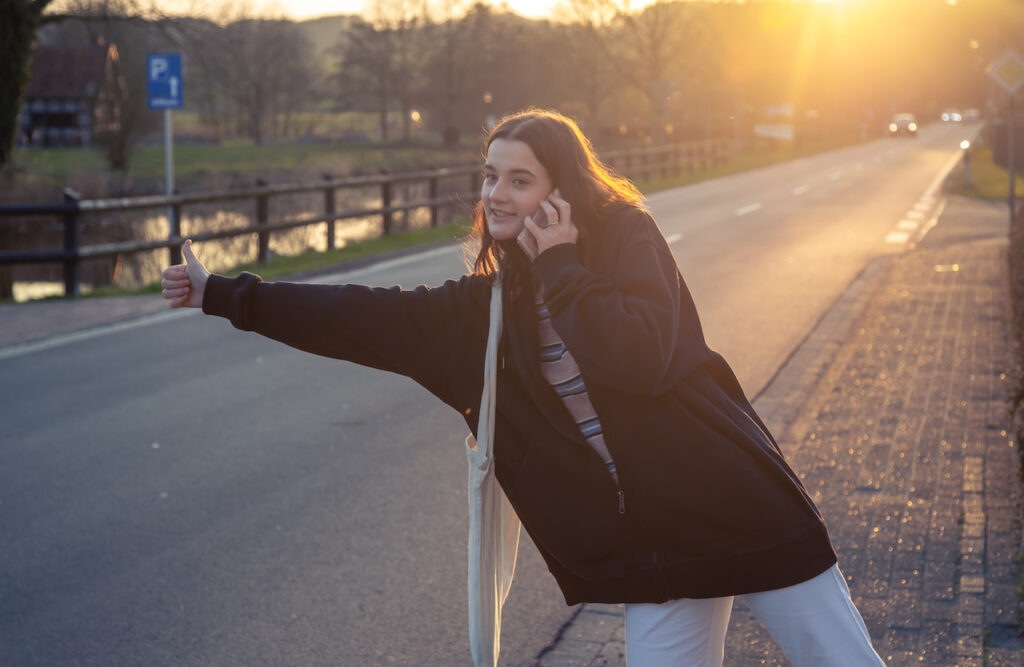
The basic rule is that if you’re able to walk somewhere, then you can stand there for hitching as well. 😊
Hitchhiking in the Netherlands: The Netherlands Lift Foundation
Marjan Knippenberg caught a lift every Wednesday to her work in RadboudUMC, which is a six-kilometre drive from her home town of Nijmegen.
She started hitchhiking because she wanted to live more sustainably and lower her carbon footprint.
On her hitchhiking journey, she met many different people: surgeons, widows, refugees, and even people battling cancer.
She founded Nederland Lift to document her experience and connect with like-minded people. Nederland Lift aims to encourage people to hitchhike as an alternative mode of transport.
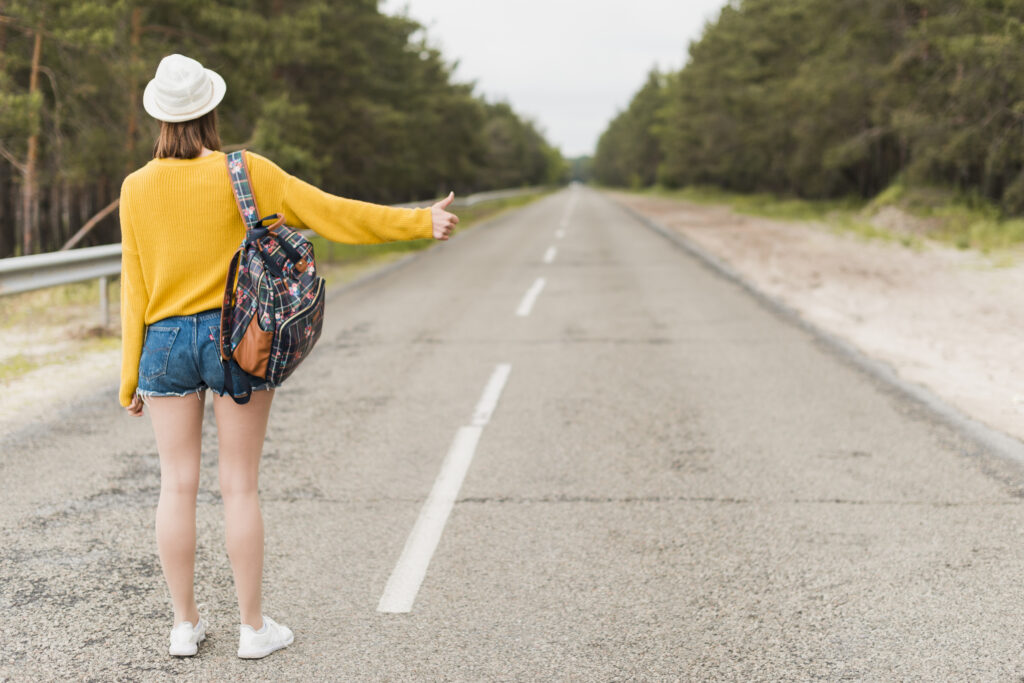
A survey interviewed nearly 800 Dutch people and found that more than half of the respondents wouldn’t have a problem picking up hitchhikers.
The breakdown in reasons for picking up a hitcher is:
- To help somebody (61.3%)
- Because they’ve hitchhiked in the past (49.5%)
- They find it a nice way to meet other people (45.0%)
The respondents who said they wouldn’t give a lift to a hitchhiker (40%) shared concerns about safety.
However, the fear of hitchhiking is actually unfounded. No study lends evidence to the belief that a hitchhiker is more likely to be in danger than anyone else travelling.
Studies into the dangers of hitchhiking
In 1973, a key piece of research commissioned by the California Highway Patrol investigated the safety of hitching.
The motivation for this study was politicians looking for evidence to curb or ban the practice. 🙅🏼♂️
Five million trips were estimated to have taken place in the summer in the state of California alone.
The study showed 400 accidents and 2800 major crimes. Alarming figures, but no more than expected in any other area of life.
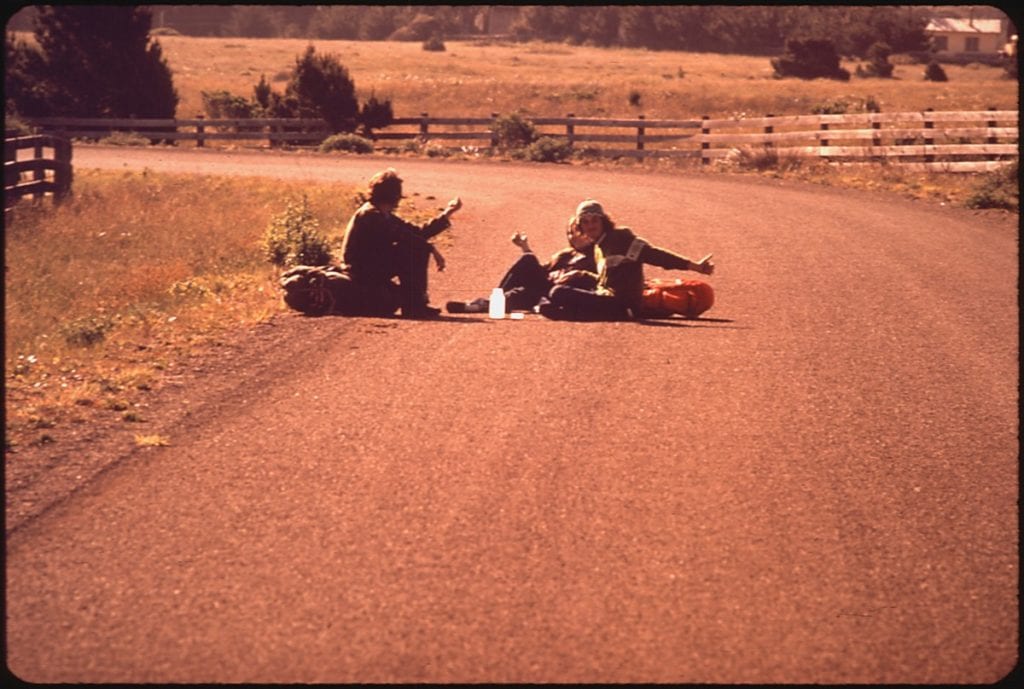
Another study was commissioned in 1980 but this time in Germany.
The report unequivocally stated the dangers associated with hitchhiking to be overrated, and even went a step further and recommended hitchhiking be included in traffic planning.
The study was disowned by the authorities and suppressed and discredited by the police who commissioned it. The voices of reason were stifled. Hitchhiking had been corrupted and stamped on by the boot of fear and officialdom.
I personally, do not want to succumb to the fear induced by the potential actions of others and stop living the life that is mine. Moreover, refraining from any activity through fear will never stop attacks from occurring.
My philosophy is akin to this quote: “If you trust everyone you meet, you will occasionally get robbed; but if you distrust everyone you will spend your whole life surrounded by thieves”.
Overcome the stereotypes: hitchhiking is not just for students and hippies with no money
Hitchhiking touches upon many of the issues which currently challenge humanity: increasing insular living, financial pressures, climate change, traffic jams and frustration with parking.

Hitchhiking can give a positive contribution to all of these challenges and needs to be looked upon differently.
As with anything, the first step is the hardest. If you’ve never hitchhiked, it can seem like an impossible endeavour.
But, after the first successful ride, you learn the tips and tricks which make it easier.
First time hitchhiking? Here are 6 tips for success
Get a head start and download these pre-written signs for hitchhiking in the Netherlands.
1. Leaving a major city will always be harder than approaching one
This is a matter of capillaries versus arteries — there are numerous exits from a city, and only a few will be leading where you want to go.
From a psychological perspective, most drivers will just assume a hitchhiker isn’t going where he or she is because there are so many road options.
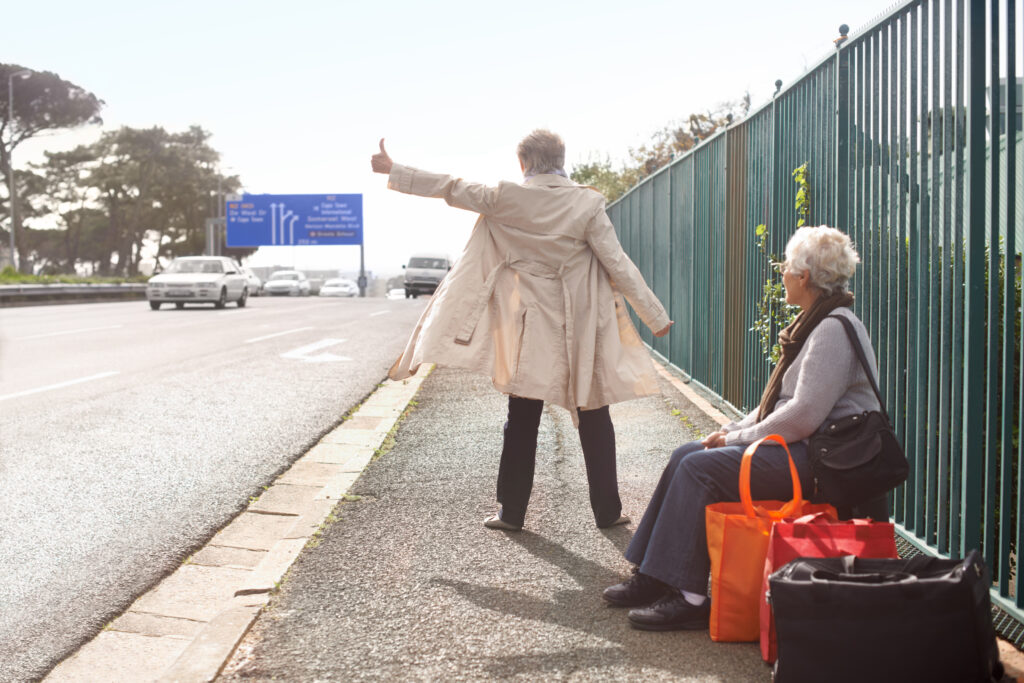
This means any temptation to stop is usually overruled by logic. When you are on one main highway, it is clear to everyone there is only one road ahead of you for a certain number of kilometres.
2. The most successful routes are usually the roads between two major cities
When going to the south of France from the Netherlands, for example, it might be best to avoid Paris.
READ MORE | Road trips from the Netherlands to Luxembourg
Travelling through the much smaller Luxembourg — and passing through less densely populated areas — will offer you a more unique hitchiking experience.
3. Be presentable (or as presentable as you can while backpacking!)
I once got told by a driver that he had only picked me up because he could see my clean bag.
Whilst you needn’t dress up as though you’re off to meet the King, running a comb through your hair and wearing some relatively clean clothes works wonders. 👕
4. Do stand in a place where a car can easily pull over
You’re more likely to get picked up if you are in a spot that’s easy for the car to pull over.
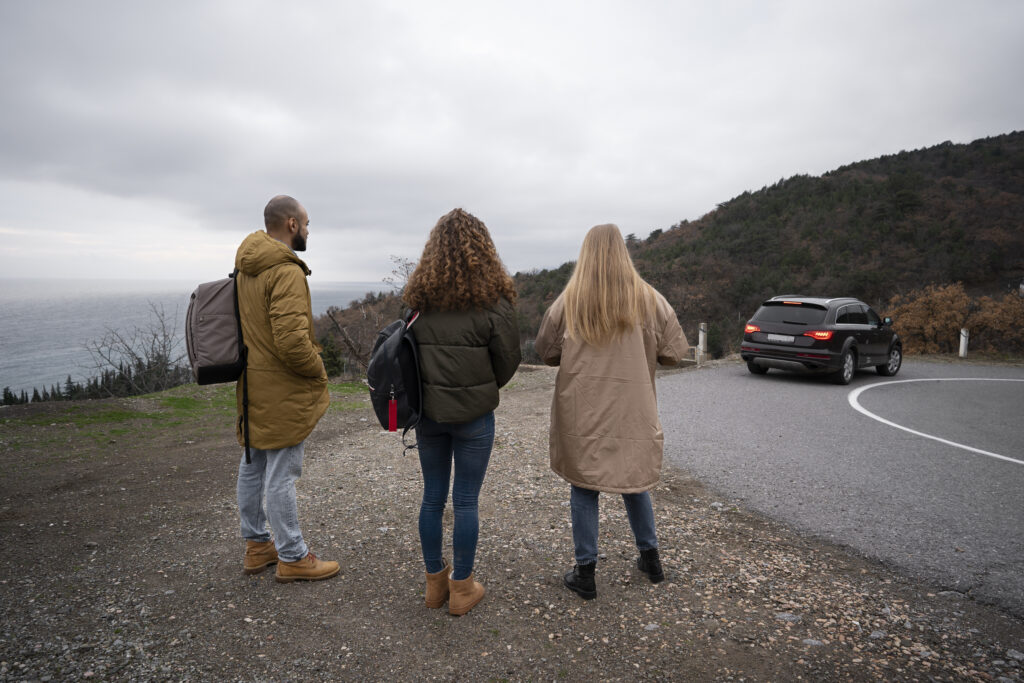
You don’t want to be standing in a place where cars can’t stop easily.
5. Don’t stand on a corner as approaching cars won’t have enough time to spot you
Standing away from corners is your best bet because it’s easier for drivers to spot you when you’re not in their blindspot.
6. Let the driver set his or her desired mood (not all drivers will want to talk!)
You got a ride, congrats! However, not everyone who picks you up will be a talkative local with lots of insight.
Some people may just want to give you the ride and that’s okay.
Designated spots to stand in the Netherlands?
Knippenberg says the government should be making more of an effort towards better accessibility for hitchhikers.
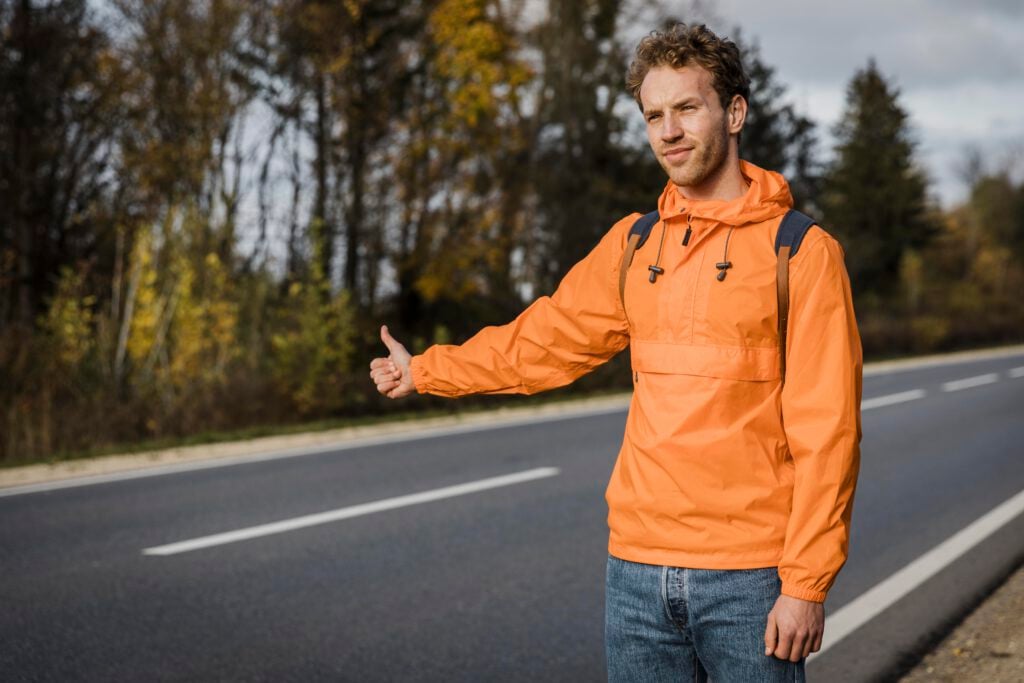
Speaking to the NOS, she says “There are only a handful of places like that in the Netherlands. In Belgium and France, the government helps a lot more with that.”
But there are still some! Here is a list of the designated spots in the Netherlands.
Picking up hitchhikers
1. There is no obligation to pick someone up even if you have pulled over
If your intuition feels off, then listen to it. The choice is still up to you.
2. Hitchhikers are flexible travellers
Their primary concern is to gain some miles, so you don’t have to take them to their exact destination.
You can try to get them as close as possible without taking you too far away from your own route.
3. Respect that the hitchhiker may have apprehensions
They are getting into your car, after all, and so they should get the privilege of asking “where are you going?” before the driver does.

LOL I hitchhiked yesterday